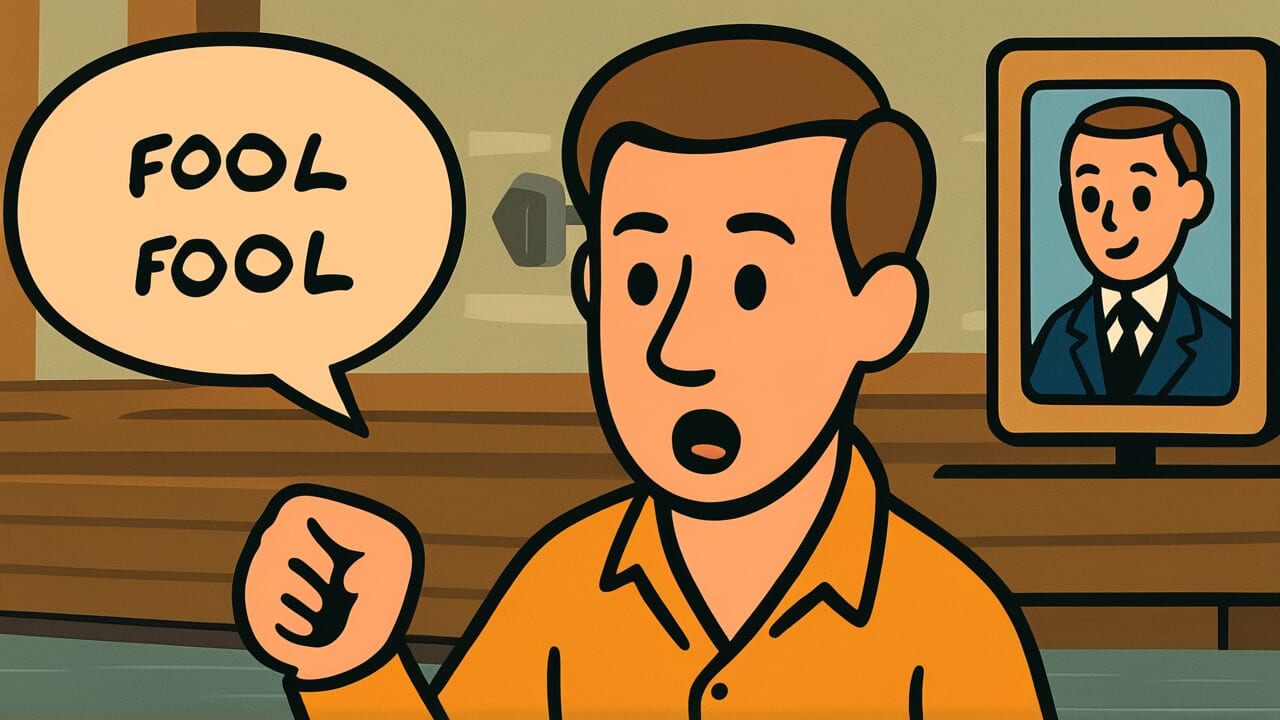How to Read “Honesty is another name for a fool”
Shōjiki wa ahō no imyō
Meaning of “Honesty is another name for a fool”
This proverb expresses a harsh reality of the world. Honest people often lose out and end up looking foolish.
People who don’t lie and act with integrity often get used by cunning individuals. They get outsmarted and end up in disadvantaged positions.
This saying is used when honest people suffer losses. It applies when sincerity goes unrewarded.
For example, some people honestly report their income and pay more taxes. Meanwhile, others cheat the system and benefit.
Or honest workers don’t get recognized while smooth talkers get promoted. These are typical situations where this proverb applies.
Even today, the reality this proverb points out hasn’t changed. Honesty is considered a virtue, yet honest people often get the short end of the stick.
This proverb sharply highlights the gap between ideals and reality. That’s why it still resonates with people today.
Origin and Etymology
No definite records exist about when or where this proverb originated. However, we can make interesting observations from how the words are structured.
The word “ahō” (fool) may come from Buddhist terminology. It has been used since ancient times to refer to foolish people.
“Imyō” means another name or alias. So this proverb literally says “honest people and fools are the same thing.” It’s a sharp observation about human nature.
During the Edo period, merchant society valued negotiation skills and street smarts. People witnessed daily how pure honesty led to losses while cunning behavior brought gains.
In such a society, this proverb likely emerged as a cynical expression. It described how honest people ended up looking foolish.
The choice of the word “imyō” is particularly noteworthy. Instead of simply saying “honest people are fools,” it uses “another name.”
This shows an objective perspective on how society views honest people. The proverb doesn’t deny the value of honesty itself.
Rather, it calmly observes the harsh reality of the world. This is the result of clear-eyed observation, not moral judgment.
Usage Examples
- I reported honestly and got blamed for everything. “Honesty is another name for a fool” is really true.
- He works sincerely but gets no recognition. “Honesty is another name for a fool” is absolutely right.
Universal Wisdom
This proverb has been passed down for generations because it points out a fundamental contradiction in human society.
We’re taught from childhood to “be honest.” But when we enter the real world, we encounter many situations where honesty causes us to lose out.
Why does this contradiction exist? Human society operates on a double structure of ideals and reality.
On the surface, sincerity and honesty are praised. But when actual benefits are distributed, those who hide information or exaggerate themselves often come out ahead.
This contradiction stems from fundamental human nature. People tend to prioritize their own interests.
Someone will always try to exploit an honest person’s integrity. Honest people reveal their hand, making them easy targets for cunning individuals.
However, this proverb isn’t just cynical. It actually questions the value of maintaining integrity despite knowing the difficulties.
The world is harsh, which makes honesty all the more meaningful. Our ancestors may have understood that this struggle defines what it means to be human.
When AI Hears This
Honest people lose because of information disclosure timing. Game theory proves that whoever reveals information first becomes overwhelmingly disadvantaged.
For example, in used car sales, if the seller honestly says “This car was in an accident,” the buyer can negotiate the price down endlessly.
Meanwhile, liars stay quiet until the other side reveals their budget first. Then they can decide their strategy after seeing the opponent’s hand.
Looking at this structure mathematically reveals interesting facts. When honest people interact with each other, they exchange information and reach optimal solutions.
But if even one liar enters the group, honest people get exploited one-sidedly. Evolutionary game theory simulations show something striking.
When liars exceed about 30 percent of the population, honest strategies get rapidly eliminated. A critical tipping point exists where honest people become the minority.
What’s even more troublesome is that honest people struggle to notice they’re losing. They can’t see the profits their dishonest counterparts gain by hiding information.
But they also don’t feel the cost of speaking honestly themselves. In other words, liars continuously extract benefits from honest people in invisible ways.
This asymmetry is the essential reason why honesty gets called foolishness. Without social mechanisms to protect honest people—systems that make lying costly—honest strategies inevitably get driven out.
Lessons for Today
This proverb gives us courage to face reality. Being honest doesn’t always bring rewards. Acknowledging this harsh truth is where real integrity begins.
What matters is choosing whether to remain honest even knowing you might lose. Don’t be blindly honest. Sometimes you need wisdom to protect yourself.
You don’t have to honestly tell everything. But that’s different from lying to deceive people.
In modern society, this distinction has become more important. In an age where people share everything on social media, we need judgment about what to reveal and what to protect.
Being honest and managing your information appropriately can coexist.
Ultimately, even if honesty causes you to lose, you can live without shame before your conscience. That might be true victory in the deepest sense.
This proverb teaches you about the world’s harshness. But it also tells you that how you choose to live is entirely up to you.



Comments